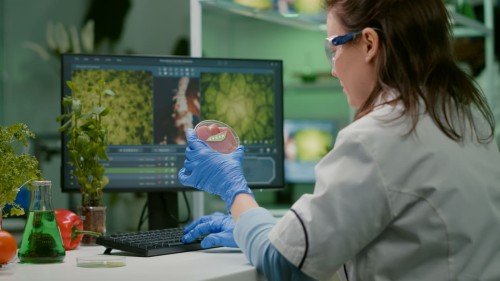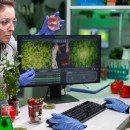
Biotechnology is transforming the way the world approaches health, sustainability, and medicine.
From life-saving gene therapies to AI-driven drug discovery, biotech is no longer just a scientific discipline — it’s the engine powering global healthcare innovation.
Over the past decade, biotechnology has accelerated at a pace once thought impossible. According to the Global Biotech Market Outlook, the sector is projected to surpass $3.4 trillion by 2030, driven by investments in genetic engineering, precision medicine, and sustainable biological production.
As research continues to expand across borders, communication and collaboration have become critical. Scientists, governments, and pharmaceutical companies must align their efforts across languages, cultures, and regulations. This growing global exchange of information often relies on precise communication tools — including certified translation services NYC, which ensure that scientific and legal documentation maintains its accuracy in international partnerships.
Genetic Engineering and the Promise of Precision Medicine
At the forefront of biotech innovation lies genetic engineering. The development of CRISPR-Cas9 technology has given researchers the ability to edit DNA with astonishing precision, opening doors to the treatment — and even prevention — of genetic disorders.
Diseases once considered incurable, such as sickle-cell anemia, cystic fibrosis, and certain cancers, are now being targeted through tailored gene-editing therapies. These breakthroughs mark the shift from generalized treatments to precision medicine, where each therapy is adapted to the patient’s unique genetic makeup.
By understanding the molecular causes of disease, doctors can intervene earlier and with far fewer side effects. The long-term implications are immense: healthier populations, reduced healthcare costs, and a more personalized approach to human well-being.
Synthetic Biology and the Rise of Bioengineering
Another groundbreaking field redefining modern biotechnology is synthetic biology — the design and creation of new biological parts, organisms, or systems that do not exist in nature.
From lab-grown meat to biodegradable plastics and biofuels, synthetic biology is reshaping industries beyond medicine. The ability to engineer microorganisms that produce pharmaceuticals, food ingredients, or renewable materials could drastically reduce environmental impact and resource waste.
Global demand for sustainable biotech solutions is pushing startups and research institutions to innovate faster than ever. Yet, as international collaborations grow, so does the need for reliable communication between scientists, investors, and policymakers. Legal agreements, patents, and clinical trial protocols must be linguistically and culturally accurate — an area where certified translation services NYC and similar specialized providers play a vital role in ensuring compliance and clarity across global markets.
AI Meets Biotech: Accelerating Discovery
Artificial intelligence (AI) is revolutionizing biotech research by enabling scientists to process enormous datasets and predict biological behavior with precision.
Machine learning algorithms can now identify molecular structures likely to succeed in drug development, drastically reducing the time and cost of bringing new therapies to market.
For instance, during the COVID-19 pandemic, AI models helped analyze the virus’s genetic sequence, accelerate vaccine development, and track global infection trends. Today, these same tools are being applied to cancer research, antibiotic discovery, and metabolic diseases.
AI’s integration into biotechnology signals a future where data-driven insights will replace trial-and-error experimentation — creating a faster, more efficient pipeline from lab to life-saving treatment.
The Future of Vaccine Technology
Vaccines have always been one of biotechnology’s greatest triumphs. The success of mRNA vaccines during the pandemic demonstrated how flexible and rapid this technology can be. Researchers are now exploring its potential to fight influenza, HIV, malaria, and even some cancers.
Unlike traditional vaccines, mRNA platforms can be updated quickly to combat emerging variants — an essential capability in a world where viral evolution is constant.
These advances also emphasize the importance of global health equity: vaccines must reach populations across continents, regardless of language or economic barriers.
This requires international regulatory cooperation and multilingual communication among scientific agencies, pharmaceutical companies, and governments — reinforcing the global nature of biotech and the importance of linguistic precision in every phase of research and development.
Biomanufacturing and Sustainability
One of the most exciting frontiers in biotech is biomanufacturing — using living systems to produce complex molecules, enzymes, and materials in environmentally friendly ways.
Industries are increasingly adopting biological processes to replace chemical production. For example, engineered yeast can now produce insulin, fragrances, and even textiles with lower carbon emissions.
By integrating sustainability into biotech innovation, researchers are helping industries transition to greener, more circular economies that benefit both human health and the planet.
The biotech sector is becoming a global ecosystem where health, technology, and sustainability converge. This evolution demands collaboration that transcends geography — linking laboratories in Boston, startups in Berlin, and regulatory offices in Tokyo into a single scientific conversation.
Ethics, Regulation, and Trust
While the potential of biotechnology is vast, it comes with ethical and regulatory challenges.
How far should we go in editing human genes? Who controls the use of genetic data? And how can nations ensure safety while fostering innovation?
Regulatory agencies are working to strike a delicate balance between promoting progress and protecting public health. Transparency, accuracy, and cultural understanding are key in this process — especially as research becomes more international.
Every clinical trial report, ethical review, and intellectual property document must be understood in its original intent, regardless of language. In this context, professional translators and specialists in biotech communication play a quiet but crucial role in maintaining trust and legality across global scientific frameworks.
A Connected Future for Global Health
Biotechnology stands at the intersection of innovation, compassion, and collaboration.
From decoding DNA to designing sustainable materials, biotech is shaping the future of how we live, heal, and interact with the environment.
As research continues to transcend borders, accurate communication will be just as important as scientific discovery. The partnerships that drive these breakthroughs depend on mutual understanding — across languages, laws, and cultures.
In a world where health innovation moves faster than ever, certified translation services NYC ensure that science remains not only universal, but truly global.
Recent Posts

What Biotech Breakthroughs Are...

How Editing and Proofreading S...

AI Tools Transforming How Biot...

Soluzioni Biotecnologiche Sost...

L’intelligence Artificielle ...

Las Tecnologías de Edición G...
Share it.
Categories
Links
© Copyright 2022 Emotiv Life Sciences


